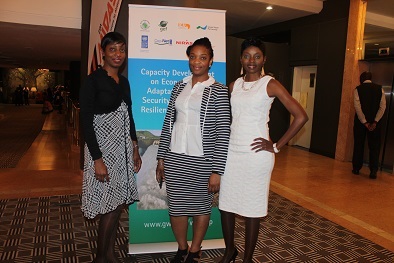Two of the young professionals are based in Zimbabwe. One young professional’s area of work is in WACDEP Zimbabwe by supporting the WACDEP Project Management team in the execution of the WACDEP 8 work packages. The position also entails assisting with the administration of WACDEP Zimbabwe’s operations. The second young professional’s area of work comprise or consists of supporting in knowledge management and communications activities in the region. The communications intern specifically supports in the deliverables of the GWP SA learning outputs of the WACDEP (Work packages 1-8) and the SADC GIZ programme.
The third young professional is based at GWPSA regional office, providing support across a range of GWPSA work programmes in WACDEP and with the SADC GIZ Mainstreaming Climate Change Programme.
In 2010, youth represented over 1.8 billion of the global population and 90 percent of whom live in developing countries. In Africa, the proportion of the world’s young people between the ages of 12-24 years is expected to rise from 18 percent in 2012 to 28 percent by 2040.
Specifically, during the extra-ordinary session held in Addis Ababa in November 2010, AMCOW urged its member states to “intensify the involvement of women and youth in climate change adaptation with respect to water resources management”.
The 2010 Revision of the UN World Population Prospects clearly demonstrate that by the end of this century, 41% of the world’s youth will be African and by 2035, Africa’s labour force will be larger than China’s. Thus, there is a need to strengthen the capacity of youth by providing professional development and quality education to cope with major challenges and an increasing unemployment rate.
Left to right: Chelesani Moyo (Communications Intern); Julienne Ngo Yegba & Evelyn Gope (Programme Interns - WACDEP CU & WACDEP Zimbabwe, respectively).
